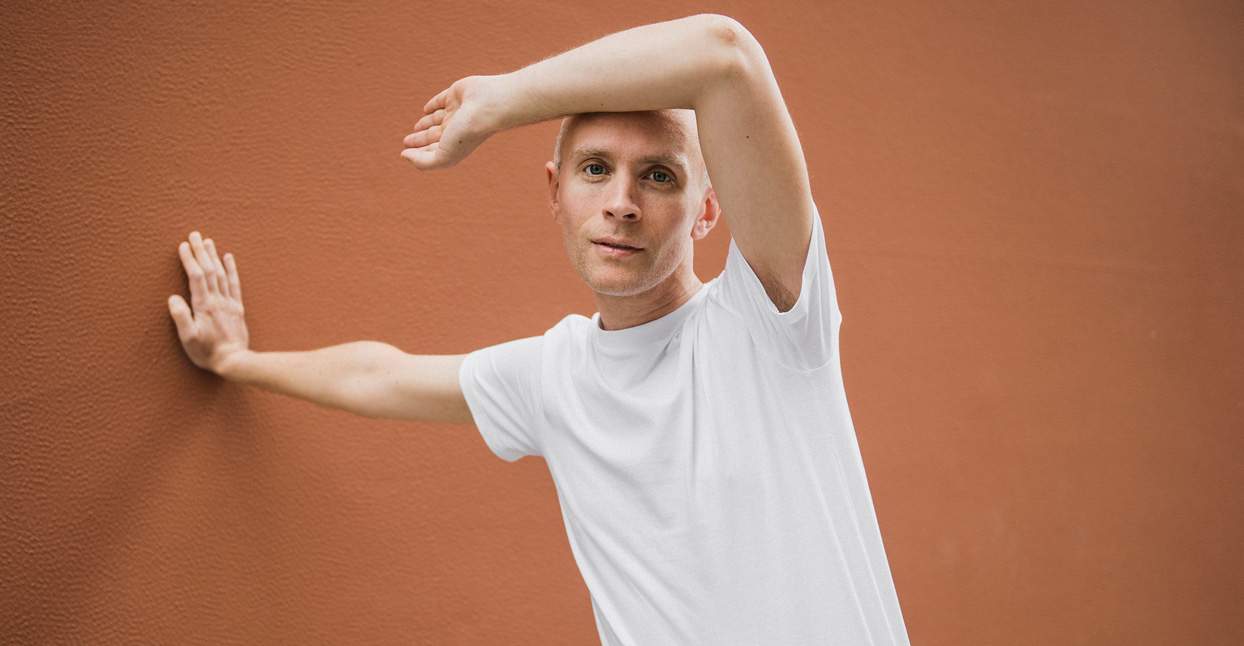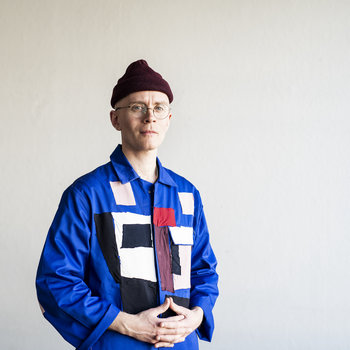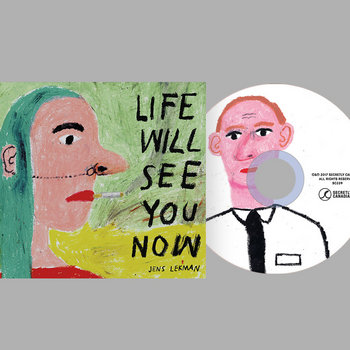
Jens Lekman didn’t know he’d be releasing his new album, Life Will See You Now—a colorful, largely upbeat collection of story songs about friendship, romance and purpose—in a time of political upheaval and chaos. “It almost feels kind of weird to release a record like this when Donald Trump has just won the election,” the acclaimed Swedish songwriter says via telephone a week before the inauguration. “I really want to hear political music right now.”
Lekman has been listening, he says, to an early ’80s proto-hip-hop track by Brother D called “How We Gonna Make the Black Nation Rise?” The 36-year-old, who is known for his considerable wit and lush orchestration, sounds enamored. “What’s really shocking is that they’re presenting problems, but a lot of what it’s about is ‘What are we gonna do?’ It ends with ‘We gotta agitate, educate and organize.’ It’s just so optimistic. It makes you want to go out there and do something, instead of hiding in a bunker like I’m doing now.”





Compact Disc (CD), Vinyl LP, Cassette



But even if Jens Lekman, protest singer, still waits in the wings, Life Will See You Now carries a powerful—if existential—message. When I ask him about “How We Met, The Long Version,” a sweeping electro-disco love story that tracks a romance back to the big bang, he explains, “That song is about the good that can happen when you actually choose [to do something] instead of throwing up your hands and saying, ‘The odds are against me.’ That’s a theme runs throughout the album.” The personal is political, after all. In the case of Lekman’s new album, it’s also a lot of fun, another reminder that one of our finest pop songwriters is a charming part-time wedding singer who writes whip-smart story-songs in his second language.
Are you at home?
No, I’m in my little workspace, my bunker where I work on my music. I’ve been here all day, I have a lot of preparations for the tour and the record and all that.
What does your bunker look like? Is it tidy? Is it crammed?
Well, I just moved into it about a month ago. It’s very small, it has one tiny little window that overlooks the—what’s it called—the place where you take the garbage and burn it. It’s a gigantic factory where they throw the garbage and burn it, and just an industrial area with a big landfill. It’s not a great view. But I’ve always liked being in bunkers and bomb shelters, so I feel very safe here.
So, the first song on the new album, “To Know Your Mission,” is about a Mormon missionary and a young Jens Lekman sort of hanging out at a coffee shop. There’s a twist at the end where you say “I’m serving you”—you being the listener. Do you feel like music is really your calling in that way?
Yeah, I do. I don’t think I necessarily had to be a musician. I’ve always enjoyed listening to other people’s stories and trying to make sense of them. I like to see how they reflect [me], and I try to understand how to see the world through these stories. As I say in the song, I think there are a lot of different professions that I could have gone into, and maybe thought of as my calling. But I developed a nice singing voice from singing in a couple of choirs, and I started liking songs. And also, I didn’t have really good grades.
Pop music is a pretty good refuge for academic underachievers!
Well, I think about this a lot. I’ve done this professionally for about 13 years now, and I’ve had success. I’ve toured the whole world, I’ve sold records, I’ve won prizes and stuff. But still, I’m not much on paper, really. I took one class at the university, but apart from that I don’t have any proper education. And sometimes when I fill out visa applications, and it’s like, “What’s your highest form of education,” or when I call landlords to find an apartment and they’re like, “What do you do?” I realize, Oh, in this world I’m nothing.



Compact Disc (CD), Vinyl LP, Cassette



In the bureaucratic world?
Yeah, exactly. But in 2015, I did this project called Ghostwriting. I did a show in Cincinnati with a youth orchestra. I told them that story: I said, ‘Try to get an education, because it’s important. I don’t have any education. I’m nothing on paper.’ At the end of the show, they presented me with this certificate, I think it was a “Doctor of Musical Hearts” or something. I have that on my wall here in my little bunker, it made my heart turn into ice cream, basically. It was the sweetest moment in my life.
I love that. I wonder, were you a particularly tender person who learned to write songs, or has the process of writing music led you to a more tender, empathetic place?
That seems like a take on the classic, “Am I sad because I’m listening to sad music,” or vice-versa? Yeah, the music affects me more than I affect my music, really. I sometimes feel like I’ve painted this picture of myself in my songs and then I have to live up to that. It’s a great way of improving yourself. You write this big song about how you’re going to be this great person, and then you realize that if you don’t turn into this great person, who are you? I’m going to be embarrassed when someone finds out the truth. I’ll have some investigative journalist after me.
So there’s an aspirational quality to your writing? Is it hard for you to sing a song that doesn’t feel true to yourself?
It is. I have done it a few times and then felt really weird about it, or regretted doing it. Sometimes you have to write a song and be like, “I could be this person.” Then you sing it onstage and you’re like, “No, I’m not that person.” Pop music is really about deciding who you want to be and trying on different pairs of shoes.
Does the picture you’ve painted of yourself in your music ever feel oppressive, or limiting?
For a little while, in the beginning, I felt like I was turning into this Michael Cera character. This sort of whimsical, adorable, harmless, geeky-but-kind-of-cute guy who was stumbling through love. That felt limiting for sure. I became really sick of that image. There was a part of me that was like that, or maybe wanted to be like that, but it felt very limiting. It was a very one-dimensional picture of a very one-dimensional character.
Your album I Know What Love Isn’t sort of broke you out of that mold. It’s such a moody, contemplative, fully-realized album.
Well, it’s still a very problematic record for me. It was a very personal record, and it was me trying to break out of what I had been doing before. It was very delicate, and I still love all the songs on it. I think some of the songs suffered musically, because I didn’t want to work with the same tools that I had been working with before: I decided to make this very somber, melancholy and downtempo album. I just wasn’t prepared for what it would feel like to play that album in front of a crowd that I had gained because of my other songs. I knew, when I made I Know What Love Isn’t, that it was not going to be as popular as Night Falls. It didn’t have any obvious hits on it, it didn’t have any hilarious stories. It’s not a crowd-pleasing record. But I wasn’t prepared for what it would be like to take that record on the road, which was not a very fun experience sometimes. I have a very nice and polite and supportive crowd. But it was very obvious that some people were just really wanting to hear the old songs. So I still love the record, but it’s problematic.
I wonder if time might change that to some degree? Maybe it’s like Nick Drake, where people just weren’t ready for it at the time?
Oh, thank you. I guess it’s like Nick Drake sings, “Time will tell you.” I’m really glad I made that record. It came from my heart, and what I’m most happy about is that I could have gone crazy with sample experiments or something like that. I’m really glad I chose to try and make something that was soulful and straight from the heart, instead.
I want to ask you about another song on the new album, “How We Met, The Long Version.” It’s kind of a love song to evolution. It’s funny, but it’s also very touching and sort of magical. Can you talk about how that song came about?
Someone asked me, once, how me and my girlfriend met. I said, “Do you want the short version or do you want the long version?” The person said, “The long version.” And I said, “Well, it started with the big bang and then galaxies formed.” It was just me being silly. I think all my best songs have started as jokes, but jokes where you feel like there’s something more in there, and you don’t really know what it is. You just keep telling this one joke, or this one funny story, and then at some point you realize that the reason you keep telling it is because there’s something deeper in there. I guess that song ties in with the album’s theme, which is about our existence and faith and making choices—about becoming a choosing individual and seeing the consequences of your choices.
Speaking of choices, have you found a way to navigate the “business” side of the music business comfortably? You’ve talked in the past about that being difficult for you.
I think it’s become more and more difficult, but I’m very happy that I’ve been doing this now for 13 years and I have enough experience to know what things were like before, and I can say ‘no’ to things. The one thing that has been worth the most to me is that I work as a wedding singer, so I take these wedding gigs and they keep me floating financially. I make some money from my music, but I do these wedding gigs that don’t really require much of a production and they pay enough that I don’t have to get sponsors and sell my music to commercials, which I’m not entirely comfortable with. That has become extremely standard practice within the music industry now. When I started releasing records, I think I had a song that had the word Nike in it. And someone I worked with said “You can’t put out that song, that’s selling out, dude.” And nowadays, everyone I work with says things like “Let’s see if we can get a sponsorship from Nike.” Everyone’s super excited about that. And of course [they are], you know? That’s the only way you can get by, really. There are not that many people buying records anymore, so it’s all about sponsorships and commercials and all that. I find that really sad.
The punk rock teenager in you reels a bit over that?
Well, it’s hard, because there are other punk rock teenagers out there right now, who are just being told, “Sorry, but this is how it works.” They have no idea how it used to be. If I were a young artist signing with a label today, and they said you have to be sponsored by this vodka company, I would say, ‘Okay, I guess that’s how it works.’ I’d probably want to not mess anything up. It’s hard to reverse that now. Almost no one is talking about this, because everyone is worried about being called out as a hypocrite.
I have to ask: When you play a wedding, are you playing your music for your fans, or are you just sort of being a traditional wedding singer and doing covers?
It is always different. I generally just do it if they have some relationship to me and my music. I don’t advertise myself to randoms. But if someone says, ‘We like this one song that you did, it meant a lot to us when we met, but we’d also like you to sing a couple of Beatles songs,’ or something, I’d be happy to do that.
Part of the thing I enjoy about playing weddings is that I’m just a musician, really. I mean, sometimes I’m a guest of honor, but the spotlight is not on me, the spotlight is on the people getting married and the families coming together. I’m almost like I’m a midwife, delivering these people into the next part of their life and then I may never see them again. There’s something job-like about it that I enjoy, and it’s helped me a lot to develop my performance. I can perform anywhere now, because every wedding is like, ‘Here’s the cake that you’re supposed to jump out of,’ or ‘Here’s the corner of the bar where you’re supposed to be singing without amplification, and there’ll be 500 drunk people.’
And some of them won’t know who you are. Is that helpful, too? Is it good for your ego, to play a room of people where a lot of them are like “Wait, who is this guy?”
That’s also what I love about it. It’s humbling. You’re not a superstar, you’re not the guy in the spotlight, you’re just someone who’s there to do a good job and sing nice so that everyone can enjoy the ceremony. That’s something that you don’t really get when you’re touring venues or clubs. Most of the people there will be fans, they’ll have listened to the records and they’ll know your songs. So I experienced it in my very early days, and sometimes when I play festivals, maybe, but apart from that, this is a brilliant opportunity to humble myself.
Do you have a set fee? Are you trying to be competitive with other wedding singers?
There’s no way to see what someone’s finances are really like, of course, but I always try to appeal to people’s goodwill. I say “Pay what you can.” Sometimes I have to think of my own financial situation and I’ll say know to someone who can’t pay enough—maybe there’s another wedding that pays a lot more and I’ll play. But for example, I played a wedding that paid really well for someone whose family was, I think, in the oil business. That was a huge wedding, and a celebration that had been going on for days. Then the next day I played the smallest wedding I’d ever been to: the officiant, the bride and the groom, a photographer and a friend of the bride’s. I arrived in a taxi on the top of this hill, and they said, ‘Okay, Jens is here.’ It was a short ceremony, and then I played a song. I think I got a hundred bucks for it. So it’s all kinds of different sizes.
And have you actually jumped out of a cake?
I have! And I have to say, if anyone wants to try that: The trick is to give the cake breathing holes, because you run out of air really quick in there. It gets very hot.
[Laughing] I can see the headlines: “Singer/songwriter Jens Lekman dies in tragic cake suffocation!”
Oh god, that’s not the way I want to go.
—Casey Jarman







